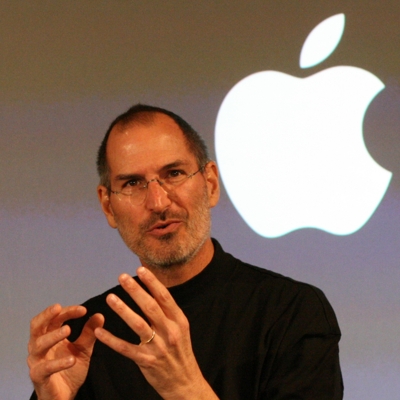There’s yet-another rumor about a new tablet device. Apple may launch a price war with Amazon’s Kindle Fire tablet — by releasing their own cheaper iPad tablet!
If the rumors are true, Apple would release the device in early 2012. Apparently a financial analyst went straight to the source — the manufacturers of tablet components in China and Taiwan. There, he heard “rumbling” about an “iPad mini,” according to the Apple Insider blog. “The ‘mini’ name doesn’t necessarily refer to the size of the device, he said, but a lower entry-level price.”
“‘We believe this lower priced iPad could be priced in the mid-to-high-$200 range,’ White wrote in a note to investors. ‘We expect this will be followed by a much more powerful, feature rich standard-priced iPad 3 in (the second quarter of 2012).'”
A lower price could boost sales around the world, in both developed and “developing” countries, according to the analyst. But it’s also a clear response to the new tablet from Amazon. The Kindle Fire, priced at just $199 put some real “price pressure” on the iPad (which sells for $499). It’s the newest battleground in a war between Apple and Amazon that’s been going on for the last four year.
In 2007, Steve Jobs was asked about the newly-released Kindle at Apple’s annual “Mac World” conference — and he predicted a rocky reception. “It doesn’t matter how good or bad the product is, the fact is that people don’t read any more,” Jobs told reporters. “40% of the people in the United States read one book or less last year. The whole conception is flawed at the top — because people don’t read anymore.”
Of course, at best that was always a “glass half empty” statement. (It also meant that 60 percent of Americans do read more than one book each year.) And according to a more-recent poll, now it’s only 25% of Americans who read one book or less each year, with 75% of Americans now reading more than one. (Plus, there’s apparently another 40% of Americans who every year read at least 11> books.) And the poll found even higher percentages for us people who own a digital reader. Each year a full 62% of us read at least 11 books, while 26% of us are reading more than 20 books!
In any case, the Kindle became an extremely successful product, and when Apple finally unveiled their iPad in 2010, Steve Jobs acknowledged that they’d include the ability to read ebooks. He conceded that Amazon “has done a great job of pioneering this… we’re going to stand on their shoulders for this.” But he still remained cold to the idea of a tablet that was smaller than the iPad — like the 7″ Kindle Fire
tablet which Amazon eventually introduced.
“One naturally thinks that a 7-inch screen offers 70% of the benefits of a 10-inch screen,” Jobs said one year ago in a conference call. “This is far from the truth. The screen measurements are diagonal so a 7-inch screen is only 45% as large as iPad’s 10-inch screen. The screens on these tablets are a bit smaller than the bottom half of the iPad’s display. This size isn’t sufficient to create great tablet apps in our opinion. While one could increase the resolution of the display for some of the difference, it is meaningless unless your tablet also includes sandpaper so that the user can sand down their fingers to a quarter of their present size.”
It’s fascinating to read Jobs’ remarks in the conference call — just one year before his death — in light of the rumors of an “iPad Mini” that’s coming in January. It may be that it will be just a cheaper version of the iPad (keeping its large 10-inch screen). But if they do make the iPad smaller, they’ll be defying the intense criticism that Jobs laid down just 12 months ago. “Apple has done extensive user testing on touch interfaces over many years and we really understand this stuff. There are clear limits of how close you can physically place elements on a screen before users cannot tap, flick or pinch them,” Jobs had said. “This is one of the key reasons we think the 10-inch size is the minimum size required to create great tablet apps.
“The 7-inch tablets are tweeners – too big to compete with an iPhone and too small to compete with an iPad.”
…our potential competitors are having a tough time coming close to iPad’s pricing – even with their far smaller and far less expensive screens…The proof of this will be in the pricing of our competitors’ products, which will likely offer less for more. These are among the reasons we think the current crop of 7-inch tablets are going to be DOA – dead on arrival.
Their manufacturers will learn the painful lessons, that their tablets are too small and increase the size next year, thereby abandoning customers and developers who jumped on the 7-inch bandwagon with an orphan product.
